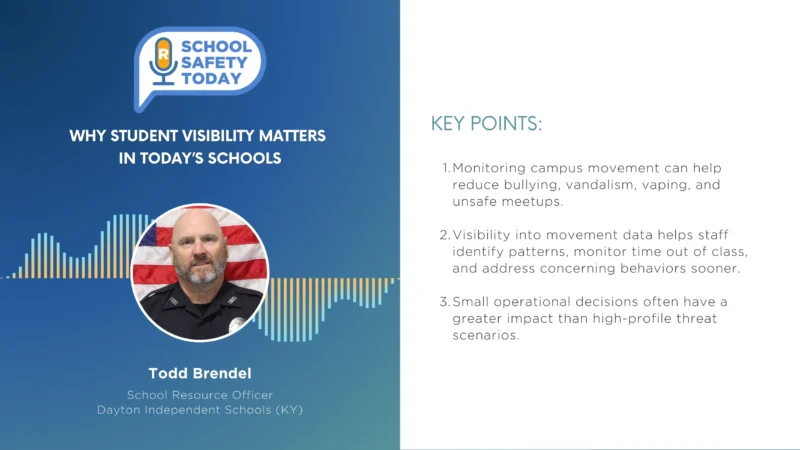5 Ways to Make Online Education More Effective
No one needs reminding that we are in the year 2020, yet we continue to offer education and certifications in virtually the same manner as we have for millennia. Should we really continue to argue whether this is the superior teaching and learning method? What if, instead, we acknowledge that online education is here to stay–and that the charge for education professionals is to ensure that this method of instructional delivery is at least equal to traditional face-to-face instruction?
Here are the top five things educational in can do to make online education more effective—and valuable—today, tomorrow, and into the future.
1 . Recruit a champion
Every institution that wants robust, effective online education programs should recruit an online “tzar” who oversees all aspects of their distance learning initiatives: curriculum, learner experiences, faculty hiring/onboarding; faculty development; and learning management systems, to name just a few.
This position should be a member of the executive leadership team and have the latitude (and funding) to run these divisions with fearless initiative. In the wake of the pandemic, these positions are emerging, and what is shocking is that they are usually location-bound. How can these visionaries fully demonstrate the efficacy, flexibility, and leadership of online education initiatives if they are required to do so from an office? Have the courage and the faith for your online champion to model best practices of leading, teaching, and managing from a virtual driver’s seat.
2. Reframe the narrative
Using the word online as a descriptor is almost implied when referencing education at this point. Why do we need to precede this program or that certification with online? Doing so underscores the perception of inferiority. Instead of saying that a student received her online CPA certification, the statement should be that the student received her CPA certification. Period. The modality will continue to matter until we stop sabotaging ourselves by allowing online as a qualifier.
3. Reconsider the expectations
Education and training leaders have begun to dismantle the myth that time equals learning. Competency-based education (CBE) initiatives have shown that students and trainers are thriving in a learning environment in which they set their own due dates and milestones. There is structure, of course, in terms of solid rubrics, authentic assessments, and substantive faculty interactions.
In the short run, institutions need not scramble to build CBE program models. Rather, rethink expectations for learners. Gather the stakeholders and start throwing everything on the table with questions about attendance, trainer/student interaction, assessment, etc. Your online education champion can provide strong leadership with these strategic planning sessions.
4. Remove the barriers
Conversations about online education cannot get very far without the digital divide being addressed. It is a critical issue, but solutions abound. Some of these take extraordinary creativity, but this falls to rethinking “the way we have always done things.” Gather your stakeholders for strategic planning on solving the digital divide at your institution. Challenge the naysayers and the status quo.
Another common barrier is faculty opposition. Here again, it’s more about a problem with “the way we’ve always done things.” Recruit the early adopters and tech stars who aren’t afraid to try new things and are already utilizing online tools in their sessions. It is important to ensure these faculty mentors are a mixed demographic. It isn’t always the younger, tech-savvy faculty who should be tapped to encourage their peers. Putting those folks front and center as models may only serve to intimidate and/or annoy the more experienced faculty. Find out who among your veteran faculty members is willing to inspire her/his peers with suggestions, demonstrations, and support.
5. Rethink the assessments
The only thing worse than having to write a weekly discussion post and then at least two “meaningful” peer responses is having to grade 30 discussion posts and dozens of “meaningful” peer responses every week. The original thought behind these was to simulate live classroom conversations. Is that happening? What about the weekly written assignments? These are not typically required in on-site classes. Why the difference?
Accurate measurement and evaluation of learning outcomes is critical to an institution’s mission, so standards are necessary. Especially when the courses are designed for business training or continuing education.
Instructors are likely to have requirements for how often, in what manner, and for how long they must present content. What’s more, they usually have the responsibility of grading discussions, peer responses, and assignments. In an average class of 25 students, these faculty can face an overwhelming 100 student submissions to grade for one class. Methods used to assess for comprehension can vary wildly, but it is imperative that the grading and submission process is considered for a remote environment.
—
The common thread is securing an online education champion at the table who can lead your institution through these five initiatives and continue to identify others. Just as we don’t really expect hard copy newspapers or shopping malls to make a resurgence, let’s face online education with the same healthy scrutiny tempered by insatiable curiosity then ultimate adoption we once felt for all the other technologic changes. Now they are seamlessly woven into the fabrics of our lives. Online education must become part of this tapestry.








